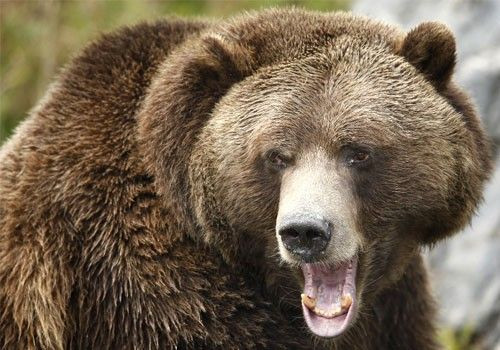Utah Supreme Court rules state cannot claim immunity in fatal bear attack case

The Utah Supreme Court has ruled that a state can be sued for negligence in case of wild animal attacks and cannot raise immunity defenses.
On June 27, 2007, Samuel Ives, an 11-year old boy was dragged out from a camp tent and mauled to death by a wild bear at an unimproved campsite in Timpanooke Recreation Area in American Fork Canyon. After Samuel's death, the bear was hunted down and killed.
Earlier the same day, the bear had attacked another group of campers and the wildlife authorities, the Utah Division of Wildlife Resources, were warned of the attack. The authorities categorized the bear as a Level III nuisance and concluded that it should be destroyed. However, they were unsuccessful in finding the bear that day and decided to resume search the following day. They also did not notify potential users of the campsite, including Samuel's family, about the attack or request the United States Forest Service to close the area where the attack had occurred.
Later, Samuel's family sued the State of Utah for negligence in the Utah 4th District Court, claiming that the Forest Service and the state's Division of Wildlife Resources had a duty to warn the family that there was a dangerous bear in the area and that it had earlier attacked the site at which they camped. They also argued the campground should have been closed until the bear was killed. The family is claiming $550,000 from the state and has also filed a $2 million negligence suit against the U.S. Forest Service in the federal court.
However, the state claimed it was immune under the Government Immunity Act's permit exception, which provides that governmental entities retain immunity, even in the face of negligence, if the injury arises out of, in connection with, or results from...the issuance, denial, suspension, or revocation of, or by the failure or refusal to issue, deny, suspend, or revoke, any permit, license, certificate, approval, order, or similar authorization.
According to Assistant Attorney General Peggy Stone, chief of the attorney general's appeals section, the state has a duty to protect the public from being attacked by dangerous wildlife. However, that duty does not mean the state can be held responsible for individuals who are attacked by bears or other vicious wildlife.
She compared the bear attack incident to suing a police officer because a home was broken into when the officer's duty is to maintain public safety in general.
In 2009, the district court held that the plaintiffs' claims fell within the permit exception because Samuel's death had at least some causal relation to the State's failure to revoke its camping authorization to [p]laintiffs and ruled in the state's favor.
However, on Nov. 23, on appeal, the Utah Supreme Court ruled that the district court erred when it ruled that the state was immune from suit under the [Government Immunity Act's] permit exception.
The court noted that the campground where the attack took place was on U.S. Forest Service land, and the Forest Service, not the state, was responsible for issuing camping permits and closing the campground as needed.
However, the act requires an agency to have the authority to make such decisions in order to claim immunity. And, as the state did not have the authority, it, therefore, could not claim immunity for its failure to warn the Ives family about the bear.
The State cannot claim governmental immunity for actions wholly conducted by the federal government. Here, the federal government owned the land, issued any authorization to camp on the land, and was the only entity that could revoke that authorization, the court ruled.
The Utah Supreme Court, which has sent the case back to the district court for reconsideration, has, however, refused to rule on the state's other immunity defenses - that the state cannot be held liable for how bears act in nature, nor does the state have a duty to protect individuals from dangerous wildlife - because those issues were not brought up at the district court level.
We would have liked to have had those two questions addressed, Stone said.
© Copyright IBTimes 2024. All rights reserved.





















